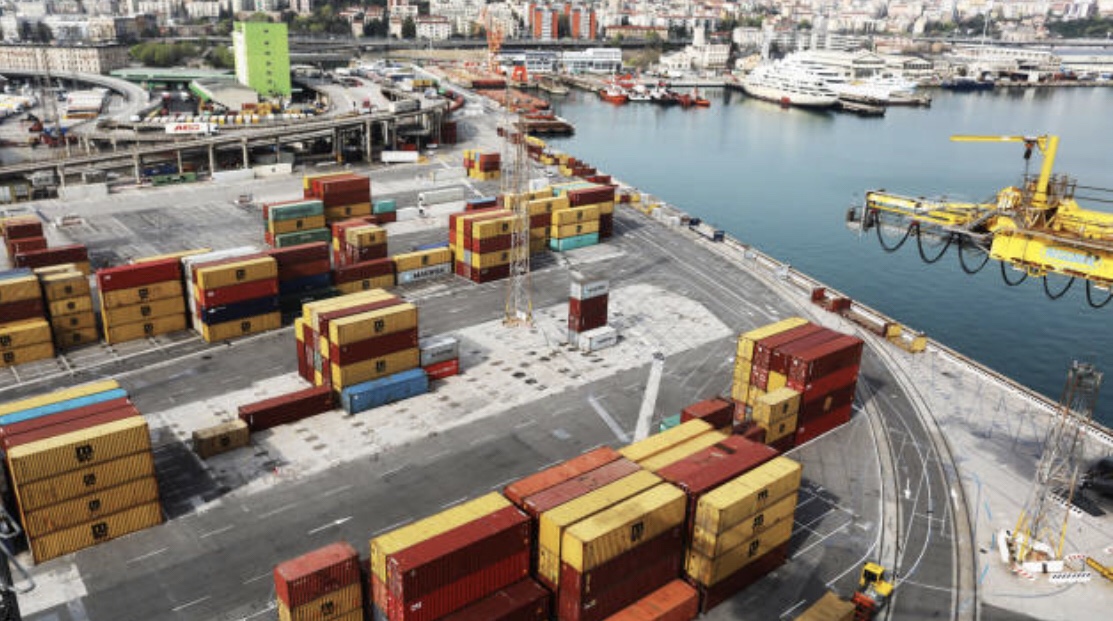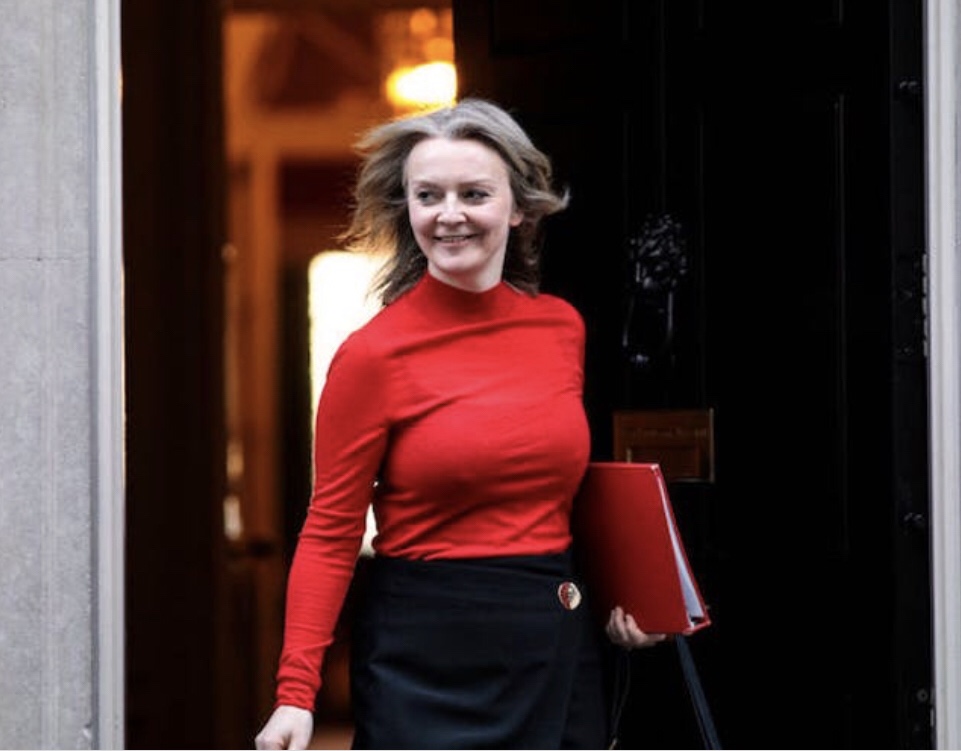The exchange of letters between Boris Johnson and Donald Tusk doesn’t offer a lot of encouragement for the great majority of us who do want to see a Brexit deal done between London and Brussels. Tusk’s response in particular, came across as rather intransigent, even absurdly claiming that the Prime Minister is seeking a return of a hard border in Ireland.

At times, the whole debate about the Northern Ireland Backstop is reminiscent of that between Pope Leo X and Martin Luther in the years after 1517. Brexit can appear like a debate between two rival sets of theologians. In 1517, the issue was transubstantiation or consubstantiation: did the communion wafer actually become the body of Christ, or was it merely representative of it?
This was a debate which would have been barely familiar to anyone just a few years before. And the sale of indulgences, and the basis of the scriptures and so on all formed part of it, too. At the Diet of Worms in 1521, the debate came to a head between the representatives of the papacy and Emperor Charles V on the one hand, and Luther and his followers on the other.
Four years on, however, what the theologians had missed was that the debate was no longer about narrow points of doctrine, but had come to involve much more fundamental principles like self-determination and popular consent, and a desire to find a solution that all sides could work with.
The current Brexit debate seems like that debate in 1521. Brussels has become entrenched. It is sticking hard and fast to the backstop, stubbornly ignoring the bigger picture. Practical politicians need to give this a fresh look. Unfortunately, the current Commission remains in place until November. A new set of eyes would understand that whatever the merits of the backstop, it simply isn’t going to pass through the Commons. And without the assent of the Commons, there is, by definition, never going to be a Brexit deal. That has been the case since early 2017 – whatever deal was negotiated would have to be agreed by the Commission and Council with the UK Government, and then ratified by the Commons and the European Parliament. All four hurdles need to be crossed. Three isn’t good enough.
So the backstop, like transubstantiation in 1521, might seem esoteric. But Johnson is also right when he describes it as anti-democratic, and therefore, like in 1521, emblematic of wider and more significant issues. He puts it succinctly in his letter to Tusk: “The backstop locks the UK, potentially indefinitely, into an international treaty which will bind us into a customs union and which applies large areas of single market legislation in Northern Ireland. It places a substantial regulatory border, rooted in that treaty, between Northern Ireland and Great Britain. The treaty provides no sovereign means of exiting unilaterally and affords the people of Northern Ireland no influence over the legislation which applies to them. That is why the backstop is anti-democratic.”
And that isn’t his only objection to the backstop. So, if the backstop isn’t going to pass the Commons, and doesn’t any longer have the agreement of the UK Government, it is self-evident that we need to urgently find something that does. This might seem an impossible task with just 72 days to go until Brexit date.
But much of the work has already been done. When Nicky Morgan and I agreed to co-chair the Prosperity UK Alternative Arrangements Commission in April, we knew we would be working with a superb team of technical experts from around the world – experts in borders, customs, logistics, transit and so on – and that we were giving ourselves around 10 weeks to produce a report on how it could all be done.
Fortunately, we knew that both sides wanted to see the work done. In their Strasbourg Declaration (actually, not that far from Worms) in March, both sides had committed themselves to finding alternative arrangements to the Backstop. When we published our 272 page report and draft protocols in July, we therefore thought we ought to be pushing at an open door. We went three times to Northern Ireland, twice to Dublin, and to Brussels, Berlin and The Hague to market the proposals to politicians, the media and other opinion-formers.
Both Johnson and Jeremy Hunt warmly welcomed our report during the recent Conservative leadership campaign. It should therefore not have a been a surprise to Messrs Tusk and Juncker that Alternative Arrangements would form the explicit or implicit basis of a refreshed UK approach on Brexit. The Prime Minister’s letter was, in my opinion, carefully crafted to be both realistic and conciliatory on what could be done, but one thing was clear, that the backstop could not form part of the deal, as it won’t pass the Commons. That is simply a statement of Realpolitik.
So Tusk’s response was disappointing. A Brussels spokesman quoted by the BBC claimed to not know much about Alternative Arrangements at all, asserting that the Prime Minister’s letter “does not set out what any alternative arrangements could be” and there was “no guarantee” they would be ready by the end of the transition period. It is almost as if nobody around Tusk had actually read our report.
Our Commission concluded clearly that Alternative Arrangements can and will work. But they won’t be up and running by October 31st. This is not a “No Deal” blueprint. Quite the opposite: our solution is the only one available which leads to a Brexit solution which will pass all four hurdles. And our proposals do need the (or at least a) transition period. Many of them can be brought in quite quickly. Some like the trusted trader scheme might take 12 – 15 months. We don’t believe anything will take longer than two to three years.
The Brexit solution lies in Alternative Arrangements. It just needs both sides to grasp it. Otherwise, I fear there could be a schism between London and Brussels which might take years, maybe decades to overcome.
During a meeting with PM Boris Johnson in Berlin today, Angela Merkel said that: ”…a solution to the Irish border “conundrum” could be found in the “next 30 days”.

PM Johnson outlined “alternative arrangements” such as trusted trader schemes or electronic pre-clearing for goods crossing the Irish border”
You can read the article here: https://news.sky.com/story/brexit-angela-merkel-sets-boris-johnson-blistering-30-day-timetable-for-backstop-solution-11790798
Up to 10 so-called free ports will be established in the UK after Brexit under new plans unveiled by the government.
My personal view is that this could be an important part of a new UK Trade Policy.
The Freeport/Freezone instrument has developed enormously during the last decade. It is today a driver of the economy in many countries. In this respect Europe has been lacking behind, even though we have successful excellent Freeport examples like ‘Le Freeport in Luxenbourg’.
However we are talking about modern Freeports/Freezones here, not the traditional zones of the past.
These are dynamic, modern trading zones with great potential for innovation, new ideas, business.
In addition, and this is important – new Freeports/Freezones have an important Customs element to it, which many people forget. Having been traditionally areas outside Customs control, we have today instead developed compliance management programmes like the World Freezone Organization (World FZO) SafeZone concept, to make zones transparent with the aim to better integrate high-performing and secure Freeports/Freezones into the global supply chain.
This is something the UK example need to consider already from the start to be successful. There have in the past been problems with zones not keeping up to the required standard for global supply chain stakeholders.
OECD has been working a long time, now together with World FZO, to promote and protect safe/secure zones in relation to high risk freeports and freezones. We have been
Here is a few lines from one of the news articles when UK Government announced the new initiative in line with PM Johnsons previous statements.
Shipping ports and airports across the UK will be invited to bid for “free port” status after Britain leaves the EU.

Liz Truss, the international trade secretary, claimed the move would create thousands of jobs and boost economic growth.
Announcing the move ahead of a visit to Teesport on Teesside, which is a possible candidate for becoming a free port, Ms Truss said: “Freedoms transformed London’s Docklands in the 1980s, and free ports will do the same for towns and cities across the UK. They will join onshore enterprise and manufacturing as the gateway to our future prosperity, creating thousands of jobs.
“We will have a truly independent trade policy after we leave the EU on October 31. I look forward to working with the Freeports Advisory Panel to create the world’s most advanced free port model and launch the new ports as soon as possible.”

Ministers hope that free ports will help boost the UK’s trade with the USA and developing countries in Asia.
The government pointed to the fact that the US has over 250 free trade zones, employing 420,000 people.
Source:Independent






You must be logged in to post a comment.